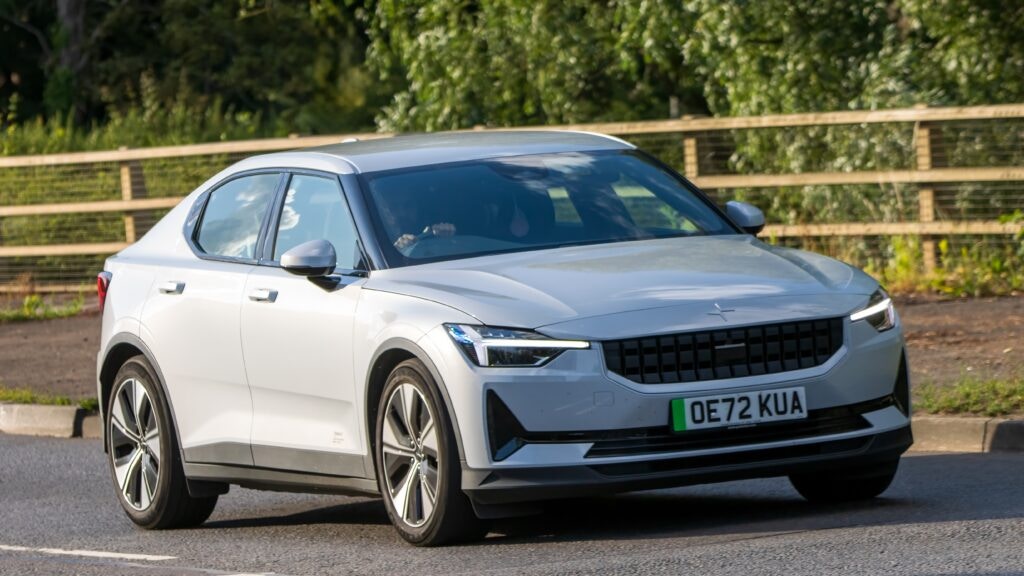Hydrogen vs electric cars

When it comes to going green with what you drive, a couple of options available to you are hydrogen or electric cars. While both boast green credentials, there is one fundamental difference between the two:
Hydrogen cars use fuel cells to convert hydrogen into electricity, while electric vehicles rely on battery power.
Keep reading to find out each option’s advantages and disadvantages, and discover which one may be the best for you.
- Understanding the different technologies
- Summary of pros and cons of hydrogen and electric cars
- FAQs

Understanding the different technologies

How do electric cars work?
Electric cars operate using an electric motor powered by batteries. When you drive, the car’s battery supplies electricity to the motor, which drives the wheels. Regenerative braking helps recharge the battery by converting kinetic energy back into electrical energy.
An external power source powers the battery, typically at home or public charging stations. These vehicles offer smooth acceleration and zero emissions, relying entirely on electric power.
How do hydrogen cars work?
Hydrogen cars, also known as hydrogen fuel cell cars, generate electricity through a chemical reaction between hydrogen and oxygen in a fuel cell. This reaction produces electricity to power the electric motor, with water and heat as the only by-products.
High-pressure tanks store the hydrogen, and the vehicle refuels at hydrogen stations. These are similar to petrol stations but for hydrogen.
A detailed comparison between hydrogen and electric cars
| Factor | Hydrogen cars | Electric cars |
| Driving range | ∼300-400 miles per tank. | ∼150-350 miles per charge. |
| Efficiency | 60-70 miles per kg of hydrogen. | 3-5 miles per kWh. |
| Environmental impact | Zero tailpipe emissions. Water is the only by-product.Hydrogen production often involves fossil fuels, impacting overall emissions. | Zero tailpipe emissions.Battery production and disposal have environmental concerns. |
| Ownership cost | Hydrogen production often involves fossil fuels, impacting overall emissions. | Lower initial cost compared to hydrogen cars.Lower running costs – electricity is cheaper than fuel. |
| Infrastructure | Limited hydrogen refuelling stations. The infrastructure is still developing. | Extensive charging network, expanding rapidly. |
| Performance | Good performance, fast refuelling and longer range. | Smooth and quiet operation, instant torque. |
| Safety | Hydrogen storage involves high-pressure tanks. Safety systems are in place but can be a concern. | Battery fires are rare but possible. Generally safe. |
Summary of pros and cons of hydrogen and electric cars

Electric cars
Pros:
- Zero emissions: Electric cars produce no tailpipe emissions, making them environmentally friendly.
- Low operating costs: Electricity is generally cheaper than petrol or diesel, and maintenance is less intensive due to fewer moving parts.
- Smooth performance: They offer instant torque and a quiet, smooth driving experience.
Cons:
- Range worries: Limited range compared to hydrogen and petrol cars can be a concern for long trips.
- Charging infrastructure: While more charging points are coming online, there may still be a lack of them in some areas.
- Battery issues: Battery degradation over time affects range and performance, and disposal has environmental implications.
Hydrogen cars
Pros:
- Quick refuelling: Hydrogen cars refuel in a few minutes, similar to traditional fuel vehicles, unlike the longer charging times of electric cars.
- Extended range: They typically offer a longer range per refuelling than electric cars.
- Zero emissions: They emit only water vapour, making them environmentally friendly.
Cons:
- High costs: Both the initial purchase price and hydrogen fuel can be expensive.
- Limited infrastructure: Hydrogen refuelling stations are sparse, which limits convenience and widespread adoption.
- Production concerns: The hydrogen production process is energy-intensive and reliant on fossil fuels, affecting their overall environmental benefits.
FAQs
Will hydrogen cars replace electric vehicles?
No, it’s unlikely that hydrogen cars will replace electric vehicles (EVs). They offer fast refuelling and longer ranges, but EVs benefit from an extensive charging infrastructure and lower costs. More people taking up hydrogen cars depends on advancements in infrastructure and technology.
Why are hydrogen cars not more popular?
The limited refuelling infrastructure, high costs, and energy-intensive hydrogen production are holding hydrogen cars back. The sparse network of refuelling stations and expensive fuel cells hinder widespread adoption compared to electric vehicles, which benefit from a more developed charging network and lower operational costs.

Is it time to sell your car?
Ready to learn more about valuing, maintaining, and selling your car? Check out our other guides here, covering everything from hybrid and electric car depreciation to converting your vehicle to dual-LPG fuel.
- Sell my car
- Track your car value
- Electric cars – the ultimate guide
- How to sell an electric car
- What is a hybrid car and how do they work?
- How long does it take to charge an electric car?
- What is a mild hybrid car?
- Which car companies make electric cars?
- Why don’t solar panels power electric cars?
- Why do electric cars have a green stripe on the number plate?
The information provided on this page is for general informational purposes only and should not be considered as professional advice.